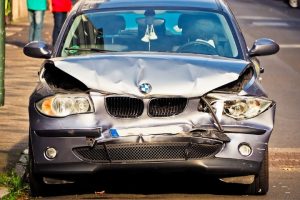 Car wrecks are disorienting and terrifying experiences. It’s easy to sort of space out and not take the necessary steps to protect yourself medically, legally, and financially. But there are some things you should try to keep in mind if you’re in an accident. Take as much time as you need to breathe and take everything into account. Put together by a car accident lawyer, here are the steps to take after being involved in a car wreck.
Car wrecks are disorienting and terrifying experiences. It’s easy to sort of space out and not take the necessary steps to protect yourself medically, legally, and financially. But there are some things you should try to keep in mind if you’re in an accident. Take as much time as you need to breathe and take everything into account. Put together by a car accident lawyer, here are the steps to take after being involved in a car wreck.
Check for Injuries
Start with yourself. Just like they say in airplane safety briefings, you have to confirm your own safety before you can help your passengers. Once you’ve confirmed it’s at least safe for you to move around, check on your passengers. Don’t just ask them how they feel. Sometimes adrenaline may block you from feeling pain. Visually look for blood and ability to move. You or your passengers may still have invisible head injuries which will need to be addressed. If anyone is hurt, immediately call emergency services, or tell a bystander to. Note: Don’t just yell, “Someone call 9-1-1!” Point at a specific bystander and tell them to call. If you’re able, do it yourself.
After you and your passengers are accounted for, check on the driver and any passengers of any other vehicles in the collision, if it’s safe to do so.
Get to Safety
If you’ve just been in an accident, your car probably isn’t safely parked in a parking lot. Therefore, you’ll need to carefully make your way off of the road. If your car is drivable and a hazard in its current location, it might be best to drive it to the shoulder. It’s important to remember that speeding cars may not see the accident until it’s too late to break–especially at night. You don’t need another car slamming into you after you’ve just had a wreck. Get yourself to safety before proceeding.
Call 9-1-1
Even if it’s a minor accident with no injuries and it’s clear who’s at fault: you should still get a police officer out there to make a report. If the collision is not your fault, then the best thing you can do to protect yourself is to have an officer declare the other driver at fault. If the crash is your fault? Get a police officer there to protect you from the other driver later saying the accident was worse than it was, to try and get a bigger payout from you or your insurance.
Exchange Information
Get the other driver’s insurance information, name, contact information, and give the other driver yours as well. Also take down the make and model of the vehicle, the license plate number, and the location of the accident.
If the other driver doesn’t have insurance, you need to get as much information about them as possible. It is doubly important in this situation to have an officer on scene. Make sure you have their full name, whether or not the car belongs to them, and accurate contact information.
Document the Incident
Get the reporting officer’s name and contact information. Obtain a copy of their report. Take pictures of every angle of all vehicles. If there are any witnesses, get their side of the story, and get their contact information if they’ll give it to you. If another driver tries to flip the narrative later, having witnesses will be a huge help in protecting yourself in any legal proceedings.
File an Insurance Claim
Assuming you have car insurance, file a claim with your provider. The sooner you get that process started, the sooner you’re back on the road with your car either repaired or replaced. If you’re not at fault, it may be a lengthy process for the other driver’s insurance company to pay out fully. You may be entitled to a rental car, medical expenses, and compensation of lost wages. Talk this over with your representative and review your own policy.
Get an Ambulance
If you think there’s any chance you were hurt, get an ambulance on scene to look you over. Not only will the paramedics be able to assess if you may be suffering from a head injury, this will help protect you in the event you have injuries that appear down the road. Paramedics will be able to inform whether or not any injuries could be expected from the accident.
A car accident can be a terrible and life changing event. But by following these steps, you can minimize the damage.










